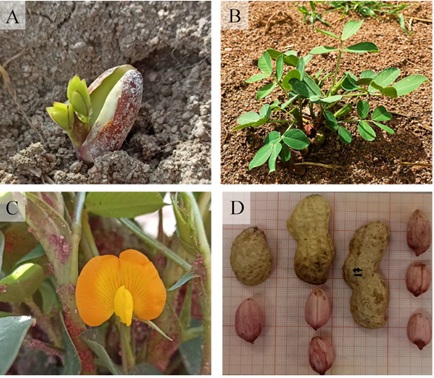Efecto de la Elicitación Física en Semillas de Arachis hypogaea Sobre el Comportamiento Agronómico del Cultivo
DOI:
https://doi.org/10.28940/terralatinoamericana.v43i.1993Palabras clave:
cacahuate, campo magnético, láser, sequía, UV-CResumen
El cacahuate (Arachis hypogaea) es un cultivo de gran importancia en la alimentación humana y en los mercados nacional e internacional, gracias a sus diversos nutrimentos y usos tanto en gastronomía como en la industria cosmética. Sin embargo, la producción de cacahuate enfrenta desafíos como la sequía y el control de fitopatógenos. En este contexto, este estudio evaluó el impacto de la radiación láser, campo magnético y luz UV-C en variables agronómicas del cacahuate. Se empleó un diseño experimental en bloques completos al azar con cuatro tratamientos y tres repeticiones cada uno, midiendo 41 variables, desde germinación hasta características morfométricas y rendimiento. Los resultados mostraron que la radiación láser incrementó la masa de las semillas, mientras que la luz UV-C aumentó la producción de vainas con tres semillas. El campo magnético demostró el mayor rendimiento en vainas, cascabillo y semillas, con un aumento del 80% de la producción por hectárea, especialmente bajo condiciones de sequía. Estos resultados sugieren que los estímulos físicos podrían ser una valiosa alternativa para mejorar el rendimiento del cacahuate en condiciones climáticas desfavorables, ofreciendo nuevas perspectivas tanto para la investigación agronómica como para la práctica en el campo, subrayando la importancia de explorar y comprender mejor el papel de estos estímulos en la mejora de los cultivos y la seguridad alimentaria.
Descargas
Publication Facts
Reviewer profiles N/D
Author statements
- Academic society
- Terra Latinoamericana

















